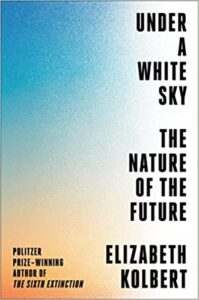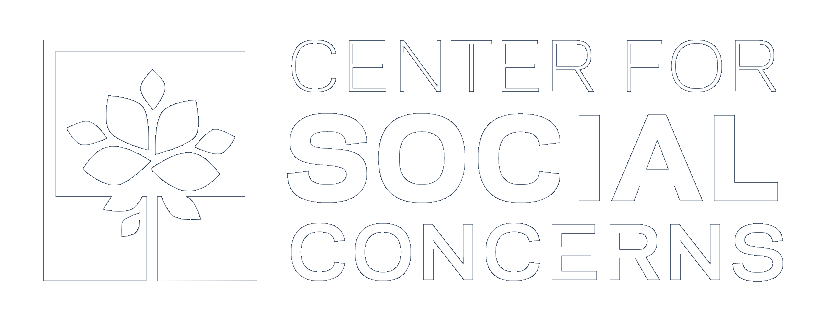 At the conclusion of Under a White Sky, Elizabeth Kolbert writes,“This has been a book about people trying to solve problems created by people trying to solve problems” (200). While that summary is an accurate description of the uniting thread in the book, it does not capture the compelling narrative that precedes it. Under a White Sky is certainly looking at some of the massive problems of the Anthropocene, but it does so through stories that tie the large issues facing humanity to the everyday experiences of individuals who are baking fish candy to catch carp or pulling carbon from the air and transforming it into stone.
At the conclusion of Under a White Sky, Elizabeth Kolbert writes,“This has been a book about people trying to solve problems created by people trying to solve problems” (200). While that summary is an accurate description of the uniting thread in the book, it does not capture the compelling narrative that precedes it. Under a White Sky is certainly looking at some of the massive problems of the Anthropocene, but it does so through stories that tie the large issues facing humanity to the everyday experiences of individuals who are baking fish candy to catch carp or pulling carbon from the air and transforming it into stone.
Many of the individuals in these stories are scientists and engineers. The US Army Corps of Engineers is a prominent character in more than one section of the book. At Virtues & Vocations, we often discuss the ways in which “good” engineering requires more than technical competence. Under a White Sky make a case for virtue in engineering without using those terms. Creating a technical solution to a single problem has a history of creating other problems, and yet, our future depends on these solutions. What are the habits of mind that must be cultivated if we are to implement solutions wisely? What does it look like to empathize with all stakeholders (not just human), to desire beauty, to pursue justice? How do we teach creativity and courage along with humility? What does practical wisdom look like when the tradeoffs are large and the urgency increasing? Kolbert does not answer these questions for us, but her latest book moves us toward asking the questions that matter most.



